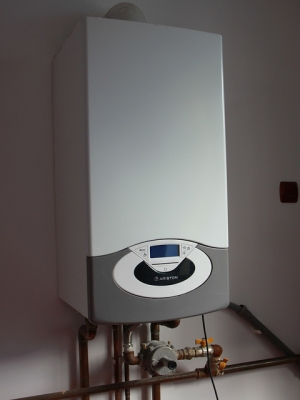Everything You Need to Know About Oil & Gas Boiler Upgrades

If you look back to just ten years ago you would scarcely recognise the technology people were using. Mobile phones with polyphonic ringtones were seen as the height of in vogue tech, DVDs were the cool new way to watch movies and the internet needed to dial up for a few minutes before you could surf.
With everything else moving along so quickly, it should come as no surprise that the boiler unit you’ve had in your shed all these years is no longer top of the line. In fact, there is a very good chance that your old boiler is actively costing you money and depriving you of the comfortable lifestyle people living in the 21st Century deserve.
You wouldn’t settle for a ten year old television or computer, so why do so many people put up with their old boilers when it’s never been easier or cheaper to replace it with a much better one?
If the idea of upgrading your system appeals to you, but you aren’t sure where to start then read on to have all of your questions answered.
How will I know when I need my boiler upgraded?
There are a number of telltale signs that highlight when a gas burner is in need of an upgrade. Boiler burner owners should keep an eye out for the following:
o Does the boiler switch off and back on by itself intermittently?
o Is the boiler’s fan making an excessive amount of noise?
o Does the pilot light have a habit of switching itself off?
o Has the burner’s flame changed colour since it was first installed?
o Is there less hot water pressure than there should be?
o Have any strange stains appeared near your boiler?
If you have answered ‘yes’ to any of these questions then you should get your boiler serviced as soon as possible and strongly consider upgrading to a high efficiency boiler to prevent the instances from reoccurring.
What is a High Efficiency Boiler?
High efficiency (condensing) boilers received their name due to scoring an efficiency rating of 90% or more on the Home heating Appliances Register of Performance (HARP) database, which takes into account a boiler’s fuel consumption and overall running costs. This reduction in expenditure makes them very good when it comes to offsetting the initial expense of installation.
Are there any grants I can avail of when upgrading my boiler?
The Sustainable Energy Authority of Ireland (SEAI) offers an incentive grant for boiler replacement under the Better Energy Homes scheme. The grant was devised in conjunction with the Irish Department of Communications, Energy and Natural Resources with a view to reducing Ireland’s overall use of fossil fuels in the long run.
Am I eligible for a boiler upgrade grant?
The boiler upgrade grant is available to homeowners whose houses were built before 2006. If you are still unsure as to whether or not your home qualifies you can contact the SEAI via email, phone (1850 927 000) or standard mail. The telephone service should provide an immediate response, while the email service endeavors to respond within one working day. Unfortunately, due to limitations in technology, the standard mail option is considerably slower. It may take up to twenty days for clarification if this method is used.
How much will I save if I avail of the upgrade grant?
Those seeking a full High Efficiency Oil / Gas Boiler upgrade can avail of a grant up to the value of €560. If you need your heating controls upgraded, but not the boiler itself you can still get €400 off the cost.
What are the long term savings of upgrading to a High Efficiency Boiler?
According to OFTEC (the Oil Firing Technical Association), a house that upgrades to a high efficiency boiler stands to save up to 18% on their heating bill every year. Others have calculated predicted savings as high as a whopping 25% - a quarter off your total heating bill! By OFTEC’s more conservative calculations, the average home will have completely covered the cost of replacing their boiler within three and a half years of the initial upgrade.
Are there any other advantages that I should know about?
In addition to the financial advantages of updating your boiler, improved safety is an added benefit. If your boiler is not burning fuel correctly there is a risk that it may begin to leak carbon monoxide (also known as CO gas). While this gas is invisible and has no taste or smell, it can be extremely harmful when inhaled in large amounts. If you are experiencing any unexplained nausea, drowsiness or headaches you should have your boiler looked at immediately by a qualified professional.
In high quantities, carbon monoxide inhalation can be fatal.
What qualifications should I look for in an engineer when having my heating system looked at?
It is illegal (not to mention dangerous!) for anyone to work on a gas boiler unless they are a registered gas installer with the RGII (Registered Gas Installers of Ireland). They have a full database of registered installers on their website. Each installer has their own unique ID. Do not have your boiler serviced by someone without the proper credentials.
Similarly, technicians who work on oil burners can be OFTEC registered. While desirable, it is not a legal requirement.
It is also very important to check that your contractor has public liability insurance. This ensures that if any accidents happen during the installation process you will be covered.
